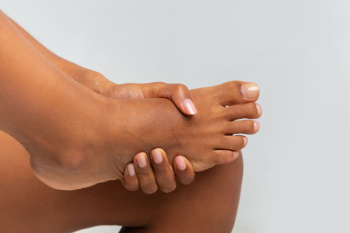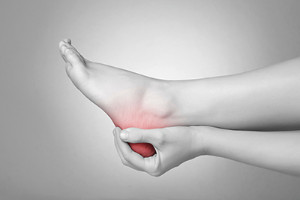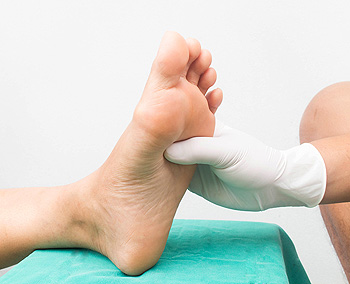
Toe pain can stem from several conditions, including bunions, hammertoe, and hallux limitus, all of which cause discomfort and affect foot function. Bunions are bony bumps that form at the base of the big toe, causing the toe to angle inward. Hammertoe causes one or more toes to bend unnaturally at the middle joint, creating a claw-like appearance. Hallux limitus is a condition where the big toe’s range of motion is limited, leading to pain, especially while walking or standing for long periods. Common causes of toe pain include ill-fitting shoes, genetic factors, injury, or arthritis. Symptoms can range from swelling and redness to difficulty moving the toes or walking comfortably. Treatment options include wearing proper footwear, using orthotics for added support, and in more severe cases, surgery to correct toe deformities. A podiatrist can diagnose the underlying cause of toe pain and provide effective treatments to relieve discomfort. If you are experiencing toe pain, it is suggested that you make an appointment with a podiatrist.
Toe pain can disrupt your daily activities. If you have any concerns, contact one of our podiatrists of InStride Family Foot Care. Our doctors can provide the care you need to keep you pain-free and on your feet.
What Causes Toe Pain?
Most severe toe pain is caused due to a sports injury, trauma from dropping something heavy on the toe, or bumping into something rigid. Other problems can develop over time for various reasons.
Toe pain can be caused by one or more ailments. The most common include:
- Trauma
- Sports injury
- Wearing shoes that are too tight
- Arthritis
- Gout
- Corns and calluses
- Hammertoe
- Bunions
- Blisters
- Ingrown toenails
- Sprains
- Fractures (broken bones)
- Dislocations
When to See a Podiatrist
- Severe pain
- Persistent pain that lasts more than a week
- Signs of infection
- Continued swelling
- Pain that prevents walking
Diagnosis
In many cases the cause of toe pain is obvious, but in others, a podiatrist may want to use more advanced methods to determine the problem. These can range from simple visual inspections and sensation tests to X-rays and MRI scans. Prior medical history, family medical history, and any recent physical traumatic events will all be taken into consideration for a proper diagnosis.
Treatment
Treatments for toe pain and injuries vary and may include shoe inserts, padding, taping, medicines, injections, and in some cases, surgery. If you believe that you have broken a toe, please see a podiatrist as soon as possible.
If you have any questions please feel free to contact our office located in Concord, NC . We offer the newest diagnostic tools and technology to treat your foot and ankle needs.









